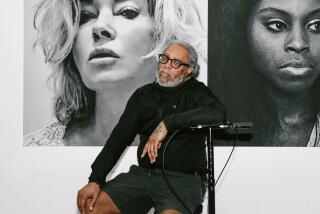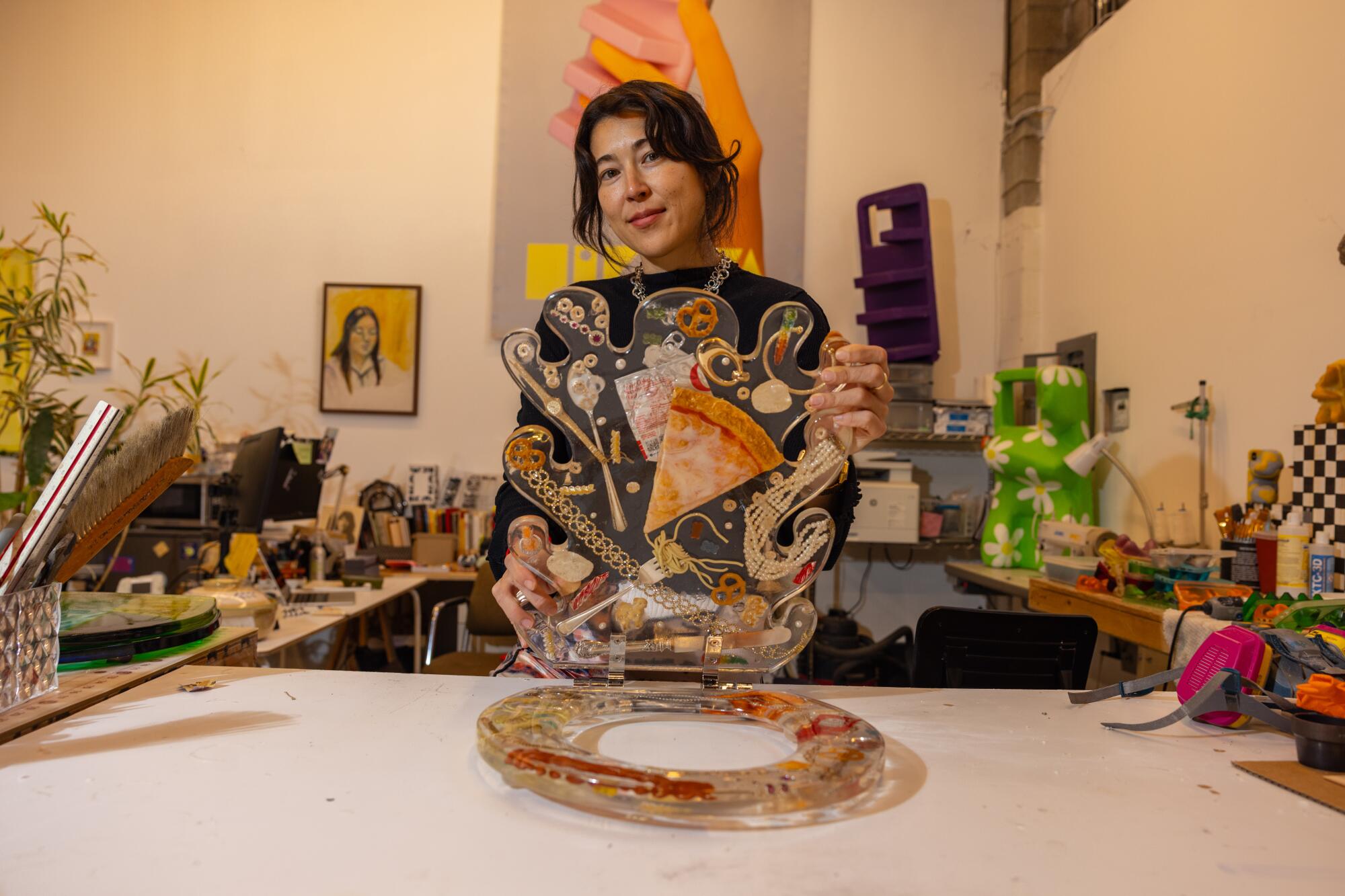
This story is part of Image’s May issue, Homemaking, about home and the many ways we choose to make it.
My toilet seats are an offshoot from the phone cases I make. The concept behind the phone cases is going through this everyday object — there’s not a lot of design around a phone, even though we use it for so many things. There’s something really beautiful that happens when people see a designed object in a space where they don’t expect it. The same is true of toilet seats. There isn’t a lot of design innovation around them, even though it’s an everyday object that we use multiple times a day, without thinking. We just assume it’s going to look and be the same as it always is. And I’m like, why is that?
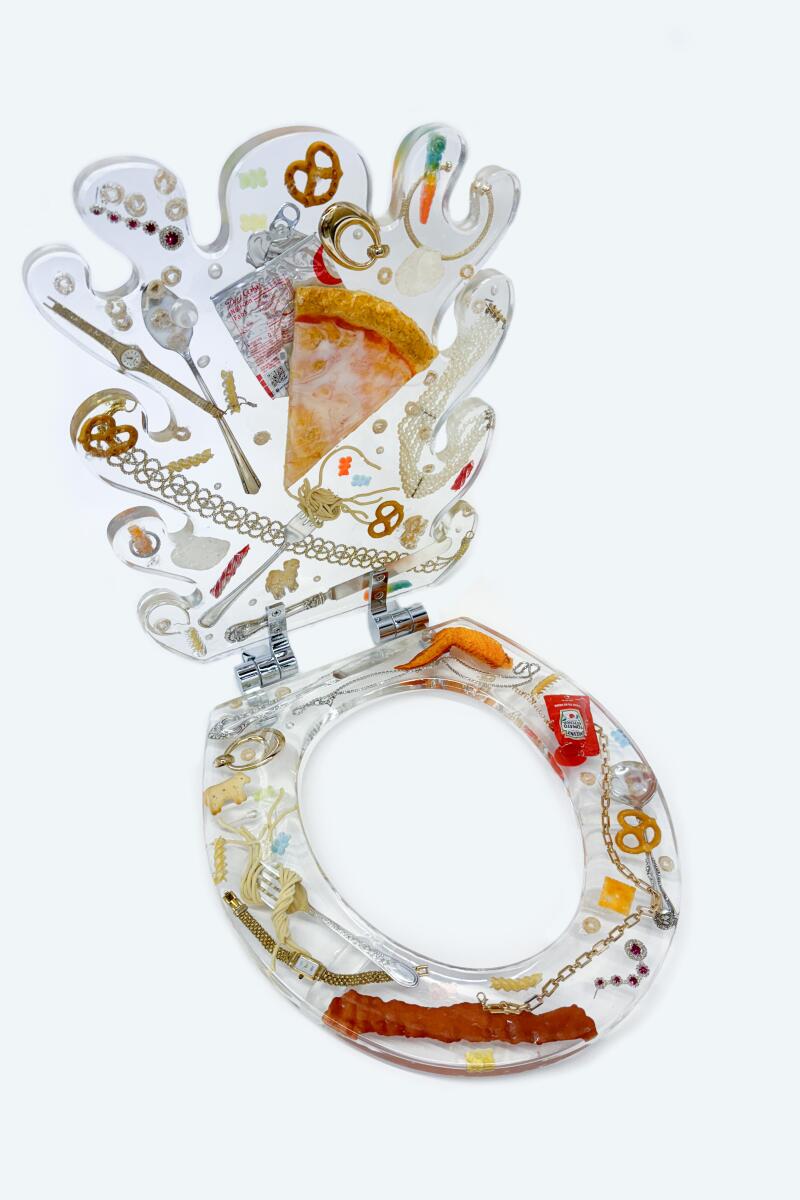
Bailey Hikawa, “Food and Jewelry” (2024), toilet seat featuring silver-plated fork, knife and spoon; fake diamond engagement ring; real pretzels; fake diamond earrings and necklaces; fake ketchup packet; fake chicken wing; real animal crackers; real Cheerios; fake milk; fake spaghetti; real Cheetos; fake pizza slice; Diet Coke can; fake gummy bears; real gummy worms; fake bacon; fake gold watch; real Cheez-It; fake pearl necklace.
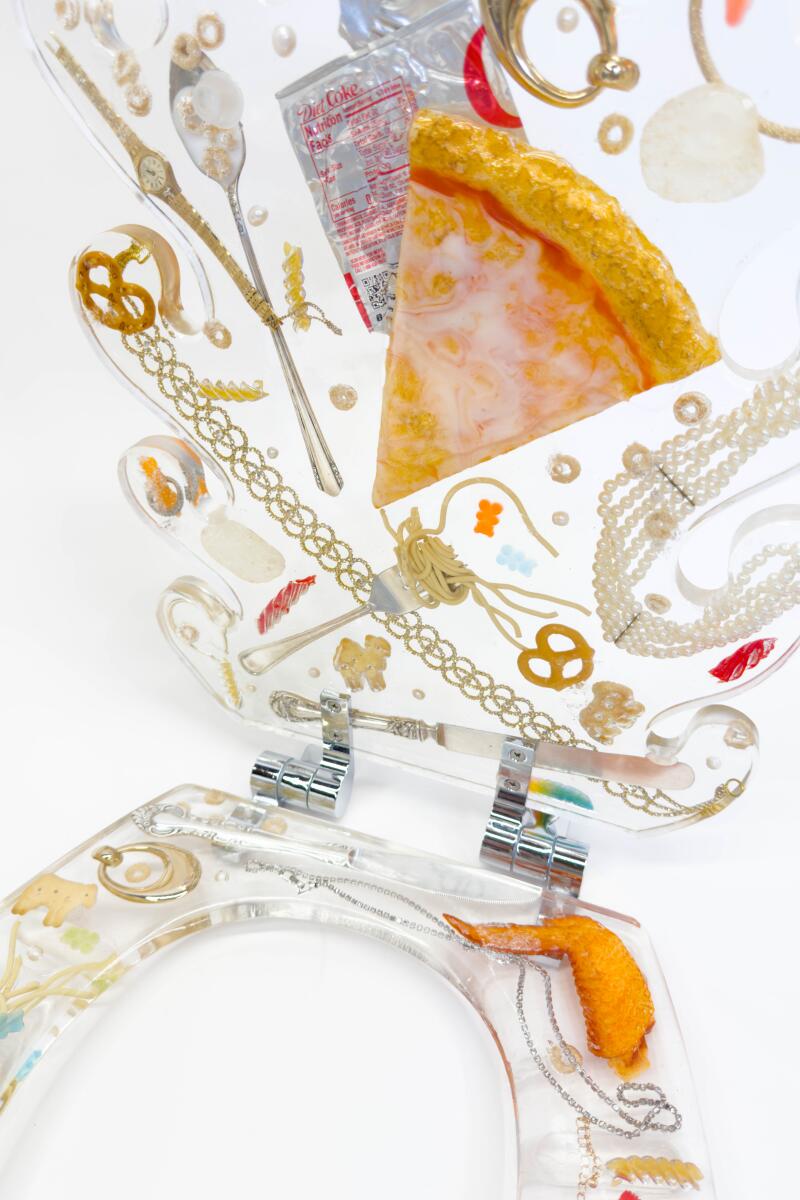
(Bailey Hikawa)
For this toilet seat, I ran with the “homemaking” prompt [of L.A. Times Image’s May issue], which is a beautiful prompt, and a complicated and loaded one, even though it’s such an old, traditional word. It brought up a lot of things for me about gender, about who traditionally has made a home. Ultimately, I went back to this tradition of who cleans toilets — women clean the toilets, women have always cleaned the toilets. And here I am as this new generation of a woman who gets to make the actual toilet seat. I wanted to talk about gender, about beauty and being a woman and adorning my body — I wanted to think about these concepts and let them marinate in the stew of the disgust of a toilet seat.
What is homemaking? It’s a lot of shopping, a lot of cooking, a lot of cleaning. But I also wanted to explore the historical concept of homemaking, even though homemaking now is, like, ordering on Amazon. I wanted to at least throw a bone to what the old homemaking was. I was thinking about feminist artists who are working with these issues, like Judy Chicago‘s “The Dinner Party,” where she makes a place setting for feminist artists. In that place setting, she’s asking, what does it mean to be a female artist? And who are we setting a table for? I knew I wanted to start from silverware, which is about home arranging, which we don’t do anymore. Instead, we are stuffing our faces with pizza and Diet Coke. We’re feeding our children gummy bears on the floor and Cheerios all over the place. There’s a chaos to eating in our contemporary world, which is just the opposite of the traditional setting where you make a meal and set a place for your family.
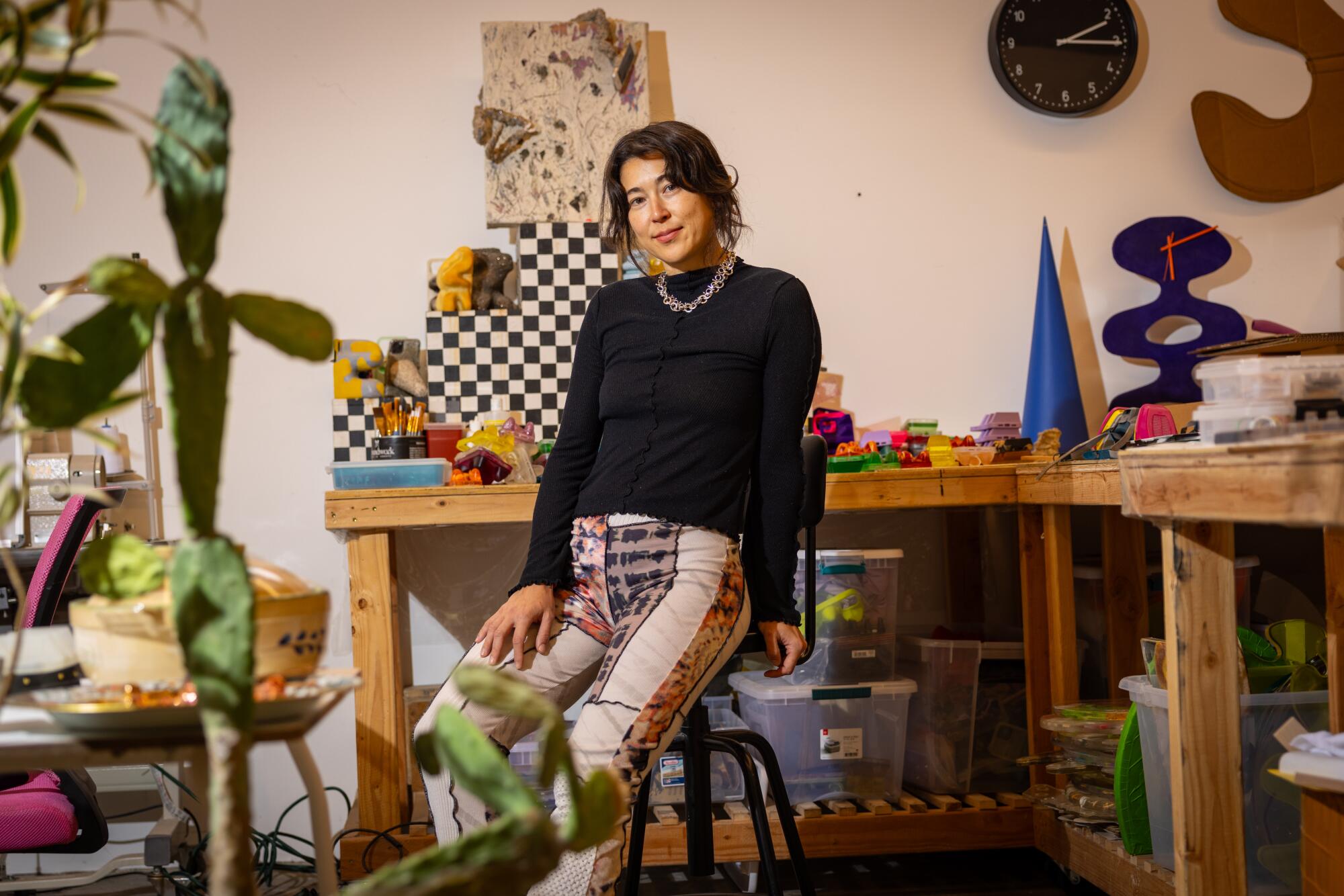
For this toilet seat, I ran with the “homemaking” prompt, which is a beautiful prompt, and a complicated and loaded one, even though it’s such an old, traditional word. It brought up a lot of things for me about gender, about who traditionally has made a home.
— Bailey Hikawa
The jewelry really felt like the icing on top. Shiny objects are so easy to come by these days, just like quick food. We’re buying them quickly and putting them in our bodies and putting them all over ourselves to make us not feel disgusting and control ourselves, our homes. Fake jewelry has something kind of disgusting about it, but it’s so glittery; food is glittery and delicious too. Something about those two things felt right — also in a toilet seat, where we are constantly denying that our bodies are disgusting.
Some of it is real food. The Cheerios are real. I have some animal crackers in there. I did fake pasta, fake milk. The pizza slice is fake. The ketchup is fake. The chicken wing is fake. I’ve been wanting to use that chicken wing because it’s so good and juicy — it’s a combination of real and fake.
I have worked with food before. I’ve made a BLT toilet seat. The eyeglasses toilet seat is one of my favorites. The watches one is very popular. There’s something about old watches that trigger something for people and knowing that they don’t work. There’s something there that goes deep into our psyche and it being in a toilet seat — the juxtaposition of time and our bodies falling apart.
I used to make paintings, sculpture and installation. Something happened for me when the sculptures and installations were activated by use. It was something I wanted to lean into and follow. I started working for a set designer, which in a way was starting to merge these art spaces with actual use. I knew I wanted to move in that direction, so I did work in film and TV. I don’t know, maybe I’m a people pleaser, but there’s something about people using an object and having it be in their everyday life that feels so valuable and accessible.
As told to Elisa Wouk Almino
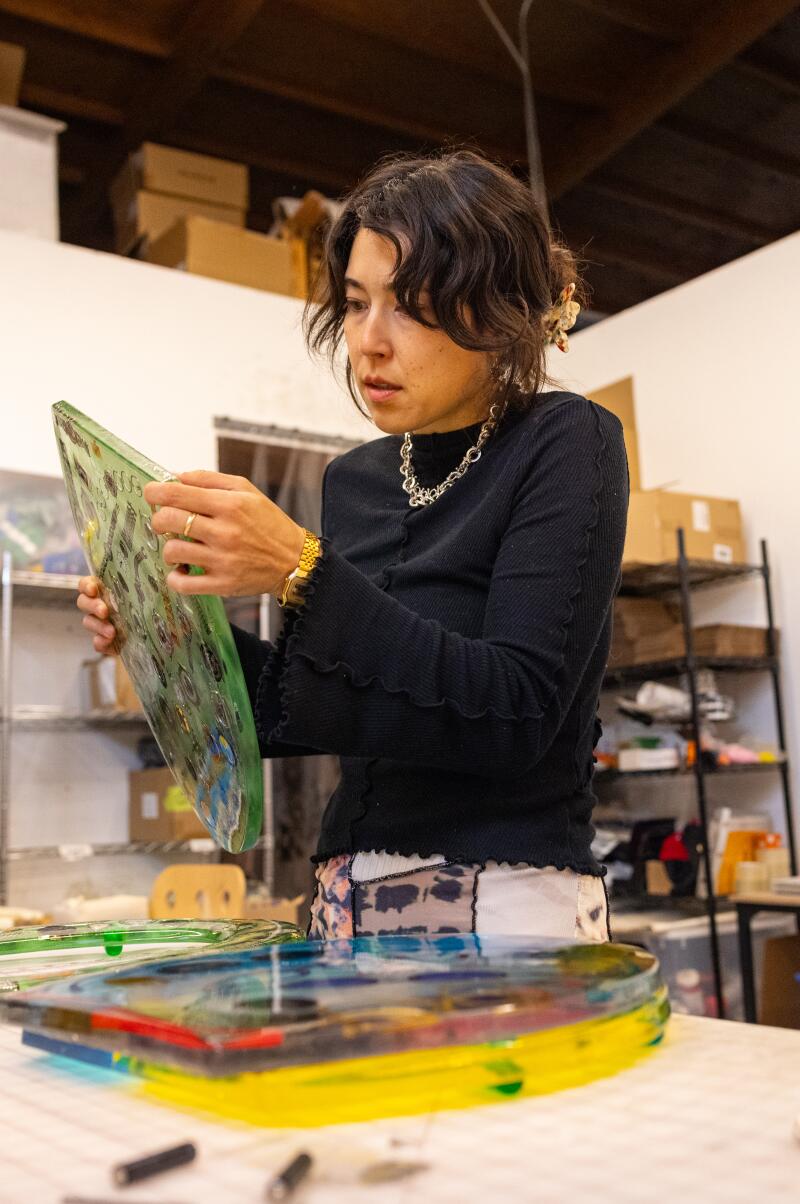
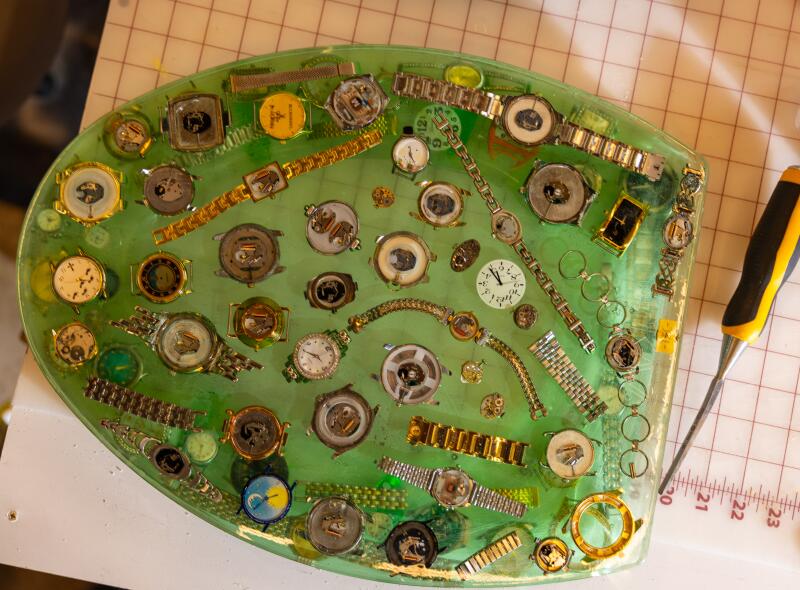
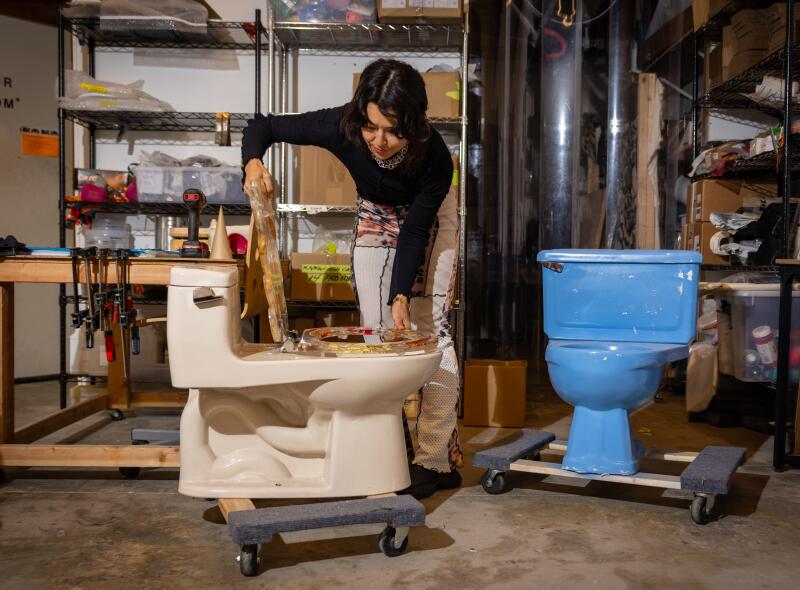
Bailey Hikawa is an artist and self-taught industrial designer living and working in Los Angeles. Her work has ranged from painting to sculpture, scenic design, immersive installation and performance, all mediums that contribute to her interest in the intersection between art and function. She launched her design studio in 2019 with the release of a line of ergonomic sculptural iPhone cases.


